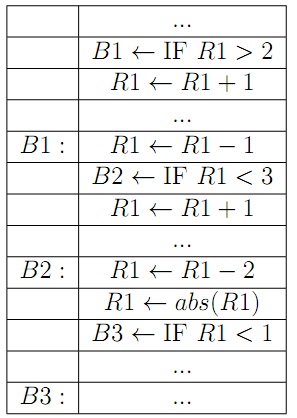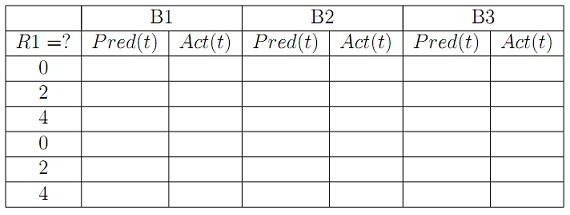Scenario:
A) Table below summarizes the relation between a sequence of three conditional statements.
�B) Use a single bit correlating predictor, with initial state "NT / NT" for each branch prediction.
�C) Assume a correlation history that initializes the �rst prediction for branch`B1' to the case of `branch taken'.
�D) Assume that the values for `R1' are only modi�ed by the instructions speci�ed in Table first and take the initial values as detailed in Table second on each new encounter with the above code.
Question 1: Complete the contents of Table second if the value for R1 iterates through the sequence 0 → 2 → 4 → .... and the predictor takes the form of a 1-bit correlated predictor. What is the corresponding miss prediction rate?
Question 2: Now design a (0, 2) predictor for the same sequence i.e., a common (0, 2) predictor design is employed for each of the three branches. What is the corresponding miss prediction rate?
Would such a predictor also work well for the case of predicting loop behaviour?
Table: Sequence of conditional statements. abs(�) denotes the absolute operator returning the magnitude of the argument.

Table: State table for 1-bit Correlated Predictor. The R1 column speci�es the initial value of the register on the �rst line of the above code. Thereafter the path through the code can modify the value for R1.
